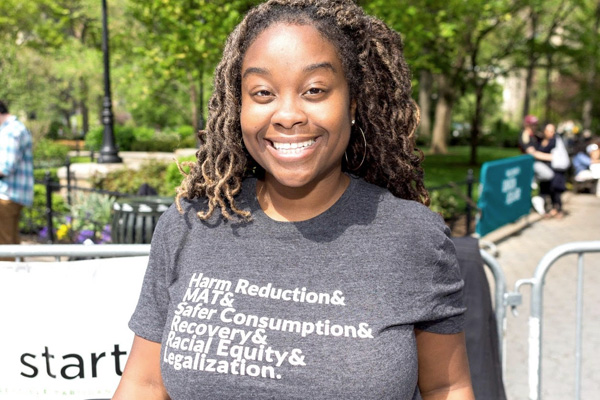LISTEN – ATTRACTION NOT COERCION –
MARCH 31, 2021 – The Washington Post has been running a series about reimagining public safety, and one of the guest columnists is Kassandra Frederique, the executive director of the Drug Policy Alliance. She believes it’s time to once and for all end the war on drugs, and joined Seattle’s Morning News to discuss why. “And so we are pushing to end the drug war, and for us that means not just ending the arrest for simple possession and low level sales, but us having a meaningful conversation about how do we disrupt the logic and the assumptions that undergird so much of our infrastructure — from people losing custody of their children, from people losing jobs or not being able to get jobs because of drug tests, we want to remove the drug war wholesale from our lives and actually put something that’s more meaningfully about support,” she added. Considering this approach, how do you balance the message to younger generations of avoiding drugs, while also sending the message of help and drug treatment if they do develop an issue?
“It’s about giving young people education and information, and having real conversations about what the risks are. Currently, young people dying of overdose don’t have any idea how to make sure they can make their choices less risky,” she said. “And there’s a lot of stigma, so people aren’t willing to share or ask questions.” “And so what we’re offering is giving parents a tool set that’s actually probably more useful, and will only strengthen relationships,” she added.
For Frederique, we need to negotiate the line between attaching stigma to drugs and educating the community about the risks.“How do we remove criminalization and punishment, and surveillance, and stigma from drugs? And then there’s another conversation that’s about how do we actually deal with drugs in our community and build a community that’s not based in stigma, but is actually based on science, compassion, and human rights,” she said.
As KIRO Radio’s Dave Ross noted, in Washington state, the Supreme Court basically just declared the law that said you could be arrested for the mere possession of drugs unconstitutional. But that law was being used to offer a drug court option to people who were caught with small amounts of drugs, so that they would be offered therapy on pain of going to jail, if they didn’t do the therapy.



